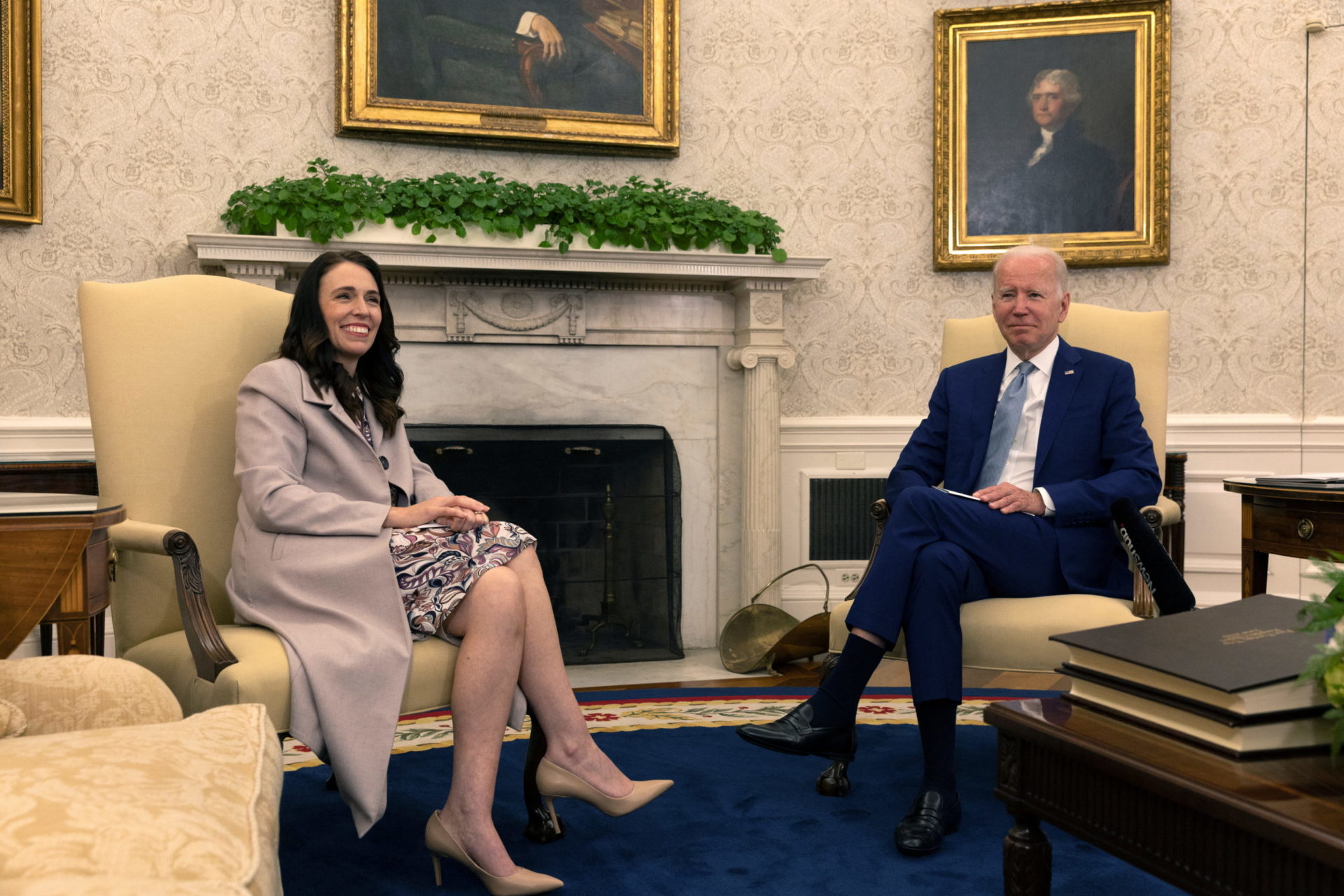Is New Zealand shifting its tone on China?
At a meeting in the White House yesterday, U.S. President Joe Biden and New Zealand prime minister Jacinda Ardern reaffirmed ties and discussed the growing tensions in the Pacific region.

Aotearoa New Zealand Prime Minister Jacinda Ardern and U.S. President Joe Biden pledged closer security cooperation in a meeting at the White House on Tuesday.
The two nations highlighted the “growing strategic competition” in the Pacific that “threatens to undermine existing institutions and arrangements” in a joint statement, just as Chinese Foreign Minister Wáng Yì 王毅 reached the halfway point on his eight-country tour of the region.
- A separate trade and security pact proposed by Beijing to 10 Pacific Island nations was tabled, after they were unable to come to a consensus over the weekend.
- New Zealand has signed up for the Indo-Pacific Economic Framework (IPEF), the alternative U.S.-led pact that Biden released just days before Beijing’s unprecedented deal, in hopes of moving toward a free-trade agreement with Washington.
- Last week, Ardern urged the U.S. on broader economic engagement in the Asia Pacific by returning to the “gold standard” Comprehensive and Progressive Agreement for Trans-Pacific Partnership (CPTPP), after U.S. President Donald Trump withdrew from the CPTPP’s forebearer, the Trans-Pacific Partnership (TPP), in 2017.
Beijing was not amused: “We noted the relevant contents of the joint statement, which distorts and smears China’s normal cooperation with Pacific Island countries, deliberately hypes up the South China Sea issue, makes irresponsible remarks on and grossly interferes in China’s internal affairs including issues related to Taiwan, Xinjiang and Hong Kong,” Chinese Foreign Ministry spokesman Zhào Lìjiān 赵立坚 said in response to the meeting on Wednesday.
New Zealand has struggled to balance its close diplomatic ties with the United States with its strong relationship with China, which has led its officials to be less bellicose on Beijing compared with other Western countries:
- New Zealand is a member of the “Five Eyes” intelligence-sharing alliance that includes the United States, United Kingdom, Australia, and Canada. Some in the group have criticized Wellington for placing economic considerations above human rights concerns when it comes to dealing with Beijing.
- China is New Zealand’s largest trading partner, with exports to the Asian country totaling $20.1 billion, including dairy, meat, and wood products.
- New Zealand was also the first developed country to sign a free-trade agreement with China in 2008, a move which put Wellington in Beijing’s good graces. The agreement was upgraded last year.
- While New Zealand’s foreign minister, Nanaia Mahuta, publicly expressed her concerns about China’s human rights abuses in Xinjiang, she has also been clear about the nation’s intention to be “respectful, predictable, and consistent” toward China.
Ardern’s visit to the U.S., however, might signal a shift in Wellington’s long-held moderate tone toward China, as Beijing’s push to strengthen ties in the Pacific has ramped up anxieties among U.S. allies in the region.
- The meeting is the first time a leader from New Zealand visited the Oval Office since Sir John Key met President Barack Obama in 2014.
- “We worked to advance the U.S.-New Zealand partnership and our shared vision of a free, open, and resilient Indo-Pacific,” Biden wrote on Twitter, echoing U.S. Secretary of State Anthony Blinken’s speech on Washington’s China strategy just last week, which highlighted the need to “shape the strategic environment” around China and promote the international “rules-based” order.
- Wellington is subtly adjusting its trade policies by diversifying away from China, as it strengthens existing cooperation in multilateral organizations such as the CPTPP, ASEAN, and APEC.






